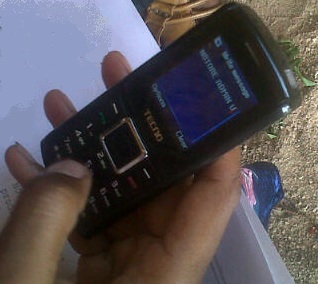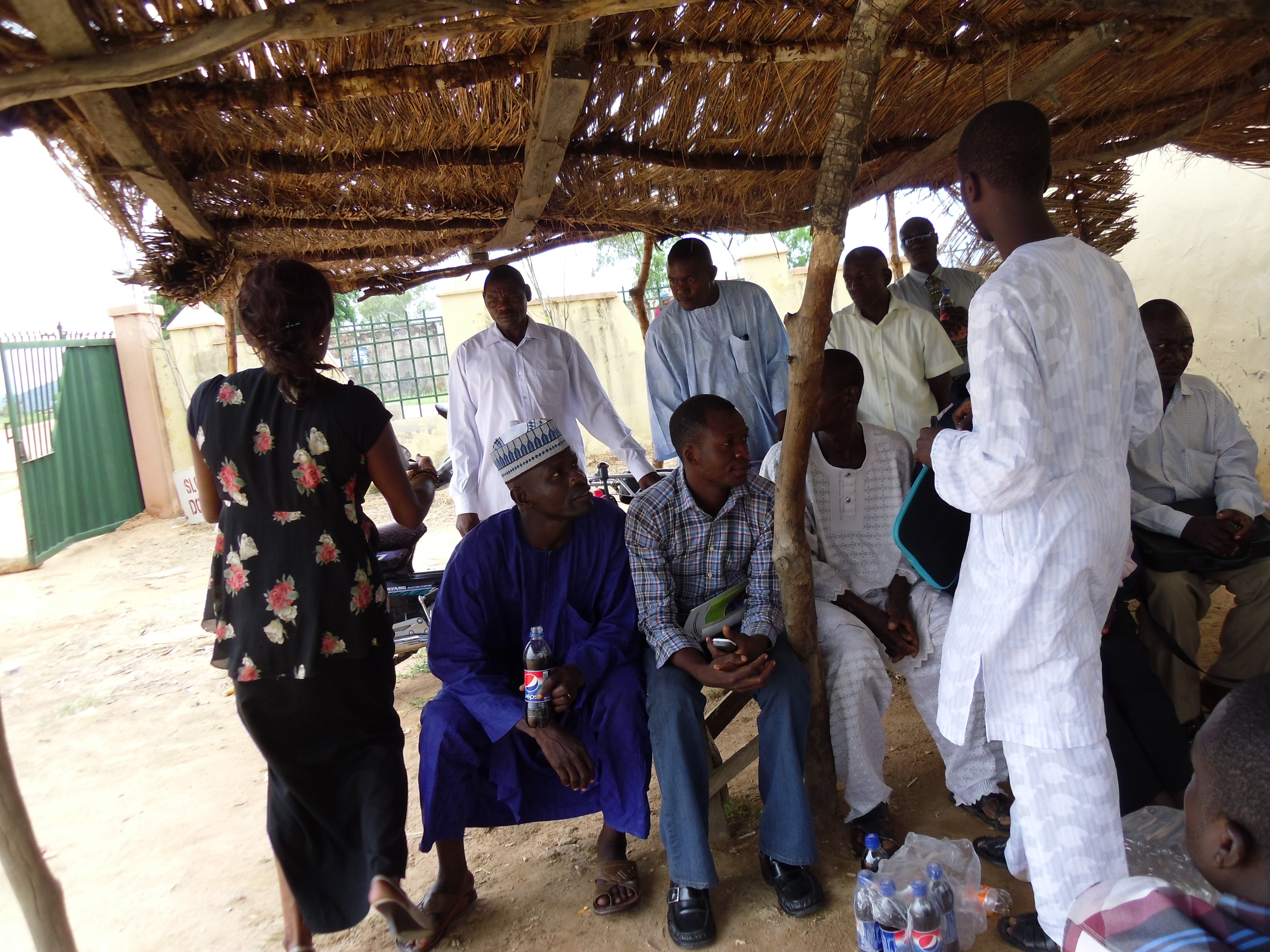
A retailer displays his mobile phone, after updating his inventory. It now shows he has 38 bags of Urea 1kg for 130NGN.
You already know how our system works for the individual farmer shopping for Notore’s fertilizers. But how do Notore’s accredited retailers update their available inventory in the system, so that the farmer can review it and make a purchase? What equipment does it require? A computer with an Internet connection? A scanner? A smart phone?
The answer: none of the above. All a retailer pre-approved by Notore needs is access to the system and a mobile phone with the ability to send text messages; the process is, more or less, the same as it is for the farmer.
(Note: Only retailers pre-approved by Notore are allowed access to the backend to upload or update inventory.)
Once the retailer uploads his/her inventory of Notore products into the system via texting (SMS), there are two ways it’s updated. If a purchase is made via mobile phone using MoBiashara, then the inventory is automatically updated. But if a purchase is made in the retailer’s store, it must be manually updated by the retailer.
Here are the two easy steps for manually updating the inventory:
1) The retailer sends a message with the fertilizer’s product ID and the updated quantity and price, if needed.
2) A response is returned showing the updated quantities and pricing.
This simple process allows for real-time updating, which in turn allows farmers to have a full picture of exactly what Notore fertilizers the retailer has on offer, in what quantity, and at what cost. In other words, the mobile phone is the store.
Another benefit: Since everyone along the distribution chain is using the same SMS-based process, it creates an invaluable continuity between Notore, Notore’s accredited retailer, and the farmer. Because they’re all on the same page, there’s no mystery and, thus, no doubt. And when it comes to business, there’s no more valuable commodity than trust. We’re helping to create and facilitate trust and understanding with MoBiashara.
Our outreach personnel have been dispatched to teach retailers, distributors, and consumers (in the case of the Notore program, farmers) on how to use the system and walk them through the process, where and when necessary.
Read Full Post »

